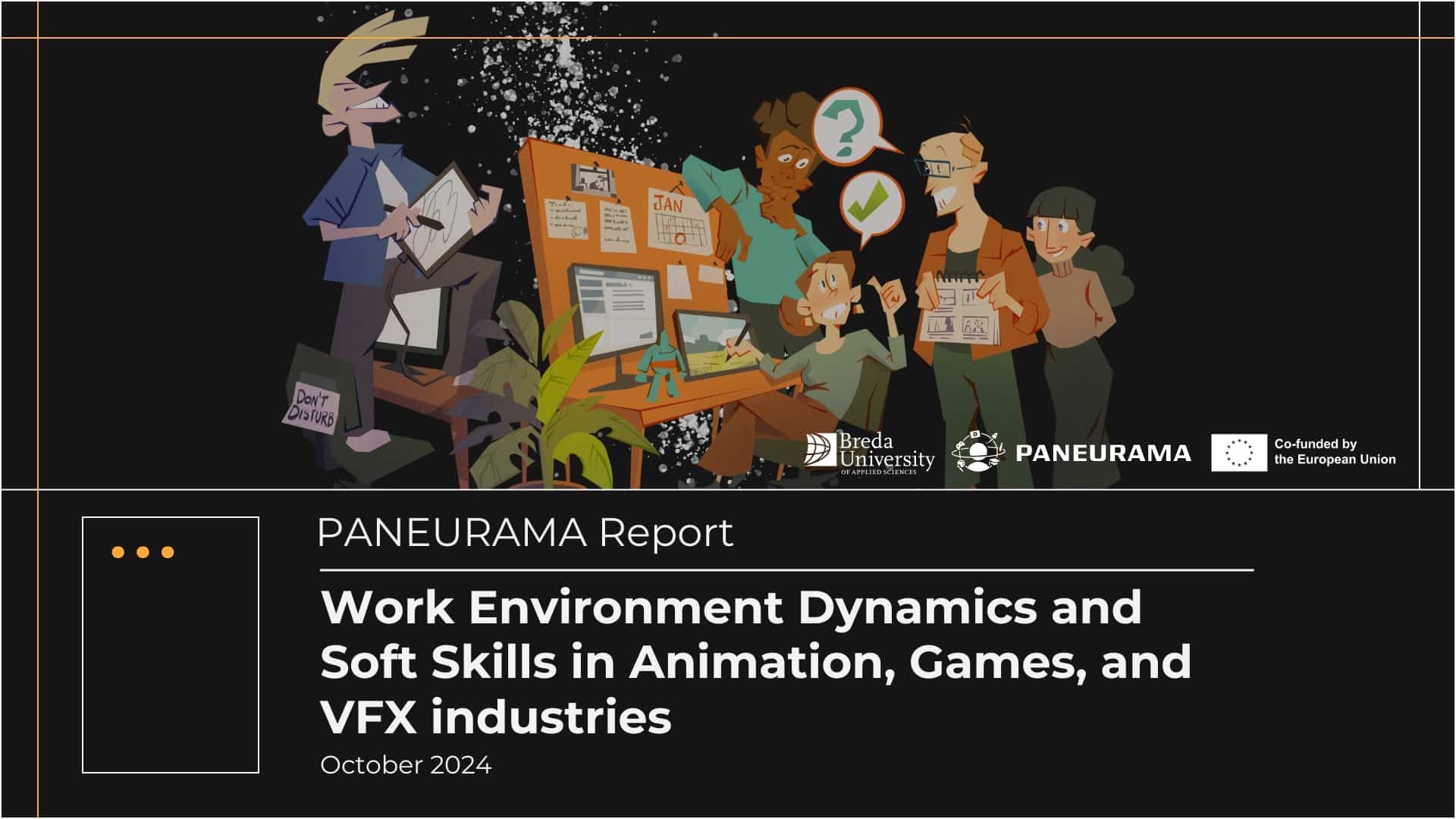We asked our team from the PANEURAMA project to briefly introduce themselves, share the areas they are working on, and respond to some questions addressing current challenges and opportunities in the industry.
We hope you will enjoy reading their insights. The interviewee is Ian Thomson from Animal Logic Academy, University of Technology Sydney.

Ian Thomson
Head of Academy
@Animal Logic Academy, University of Technology Sydney
Q: Can you provide a brief overview of yourself, your professional experience, and the institution you work in?
I am currently Head of the Animal Logic Academy at the University of Technology Sydney where we run a 1 year accelerated Masters course in Animation and Visualisation. I have previously held Creative Lead roles in agencies in London and Barcelona (Framestore), Hamburg (DMC) and Sydney (VPC).
Q: In recent years, what do you consider the most significant changes within creative digital education? How has it affected your institution? Could you give some examples?
It is an exciting time as increasingly we are seeing a fusion between creativity and technology. Students are no longer divided but need to understand and develop skills in how these two critical areas of innovation meet in the specific area of their specialisation. We are seeing this particularly in how AI can be used as a tool in the creative process.
Q: What, in your opinion, are the primary challenges currently faced by creative digital education and how is it affecting your institution? Could you give some examples?
The biggest challenge for educational institutions is staying ahead of the rapid changes in technology. This requires an agile approach, that at times needs to focus on open curriculum design and an emphasis and problem-solving and future-thinking skills in graduates.
Q: Could you please identify the most significant opportunities for creative digital education and possible ways to address them?
The opportunity for creative digital education is to harness the potential of no-border collaboration. Students, teachers, peers, collaborators and industry partners no longer to be in the same place or in the same time zone to collaborate. The challenge is how to best manage these processes of transcultural and diverse collaboration.
Q: What do you think are the most important hard skills in the area of creative digital education in which you are working?
Even though it is essential to remain agile and learn and adapt to emerging technologies and hard skills, it is also fundamental to have deep and highly specialised skills in one or more areas. This is known as T-skilling, and is a key to gaining entry-level employment, but then to be able to quickly grow and develop along with industry and new developments in hard skills.
Q: What advice could you give to industry professionals to foster closer collaboration and partnership with educational institutions? Could you share some examples?
I would encourage industry and education to reach out and talk to each other more. Explore innovative ways to collaborate together, as you are ultimately fostering a win-win relationship, with educational institutions developing graduates better aligned to the needs of industry and researchers that can help solve some of the challenges that industry faces.
Q: What do you think creative digital educational institutions should focus more on to better prepare young artists for their careers?
Listen to, talk to, and consult with the industry. It is essential to understand how the industry is developing and what gaps and needs there are.
Q: What do you think are the most important soft skills needed for students and graduates who are going to work in creative digital industries? Could you give some advice on how to develop them?
The most important soft skills are learning how to work together as part of a team. Become a good co-worker. Then letting go of ego, and learning to become an excellent communicator who is able to offer and receive feedback and implement this in a positive and constructive way.
Q: Could you provide suggestions or recommendations for students and graduates aiming to succeed in the current market?
Be clear about where you want to go in the industry and tailor your showreel and application documents to this focus. The more specialised you become, the easier it will be to find the right role. Be driven forward in your life by your aims and goals, rather than being propelled by a novel job offer or simply and opportunity that comes along, but you take it even if it is not the right one.

